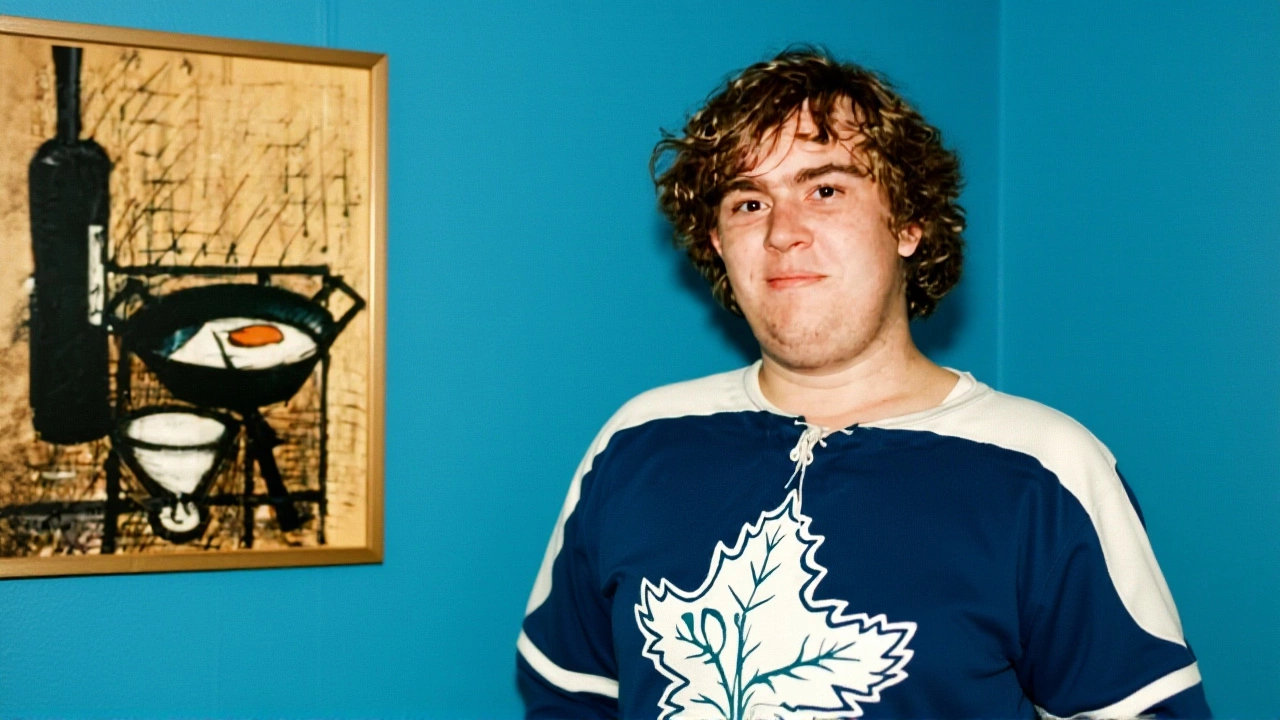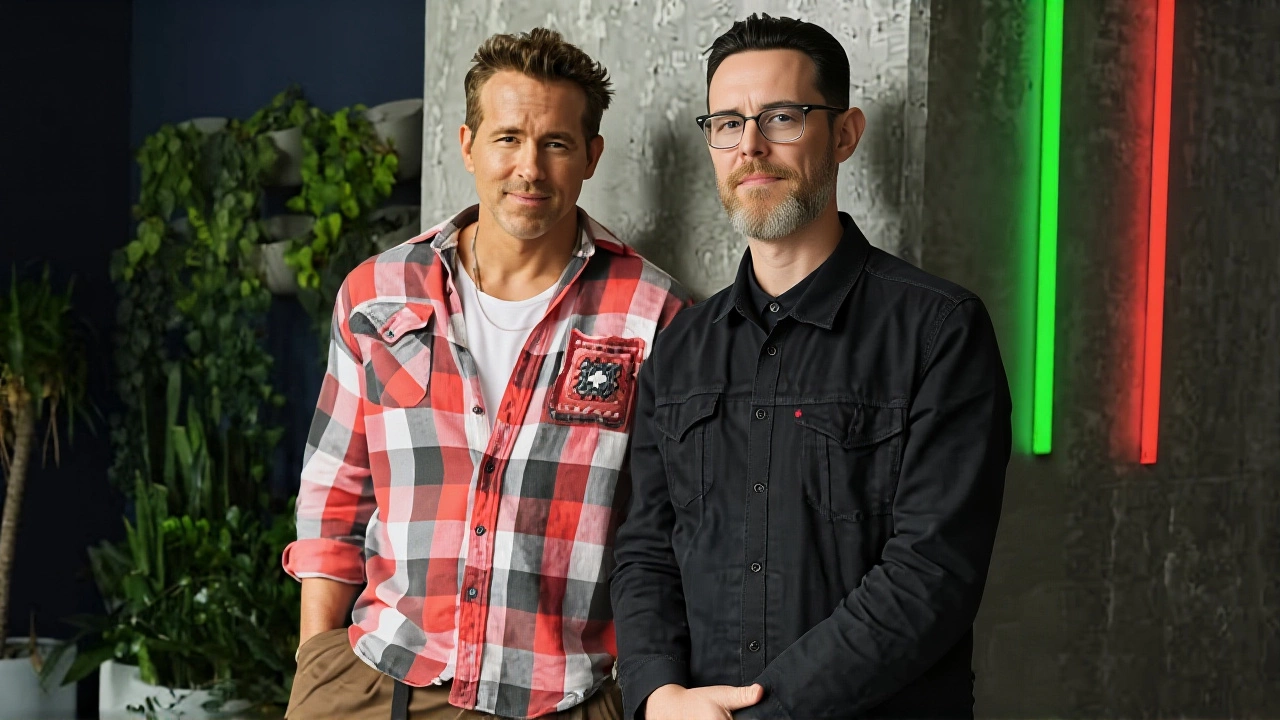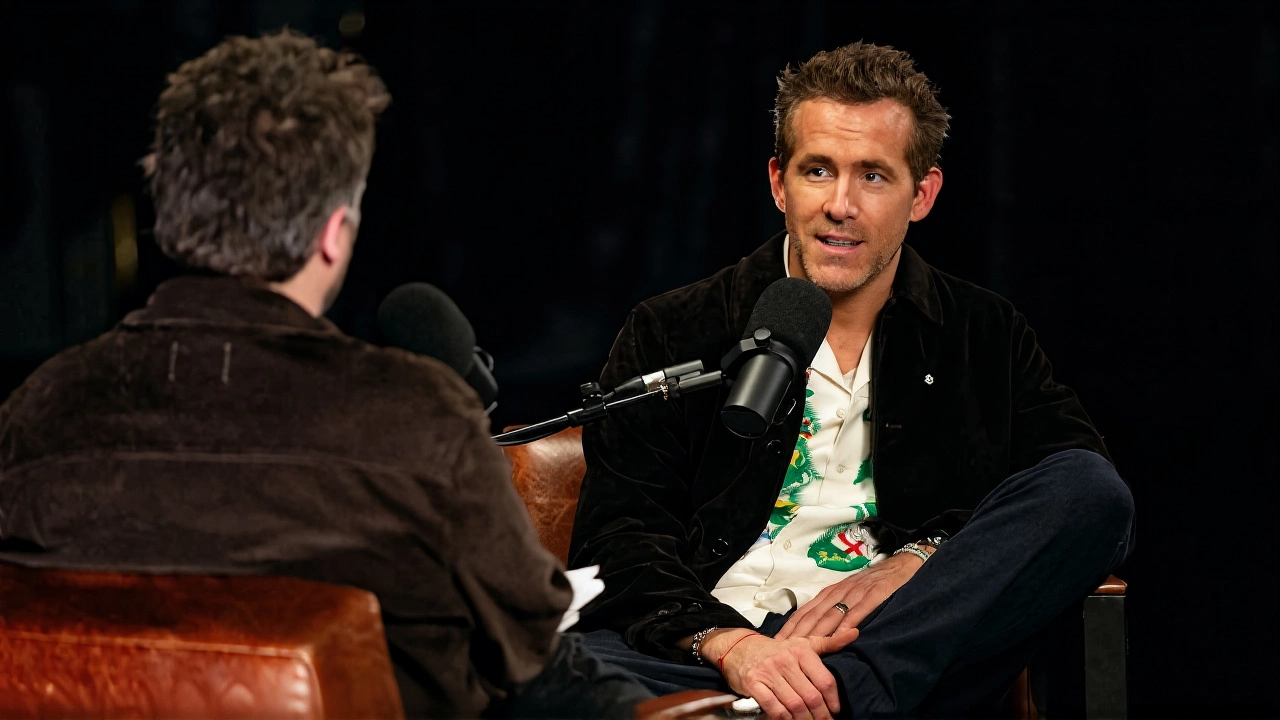When Ryan Reynolds stepped backstage at Toronto’s Queen Elizabeth Theatre in October 2023, he didn’t just talk about a movie—he talked about a mirror. The Canadian actor and producer, best known for Deadpool and co-founding Aviation Gin, had just finished promoting John Candy: I Like Me, a deeply personal documentary streaming on Prime Video starting October 10, 2023. This isn’t just another celebrity tribute. It’s a raw, unsentimental look at how John Candy, the beloved comic genius, used humor as armor—and how that same armor broke him.
Why John Candy Still Matters
John Candy died in 1994 at 43, just as his career was hitting its stride. For decades, he was remembered as the big guy who made you laugh—Saturday Night Live alum, Planes, Trains and Automobiles star, the guy who ate an entire turkey on camera. But Reynolds, 46 at the time of the interviews, sees something deeper. "Everything that I’ve ever done that worked was because I loved it," he told CBC’s Tom Power. "I wasn’t thinking, ‘Women 18 to 34 are going to like this.’" That honesty? That’s Candy’s legacy. And it’s why Reynolds, who grew up watching Candy’s films in suburban Vancouver, felt compelled to tell this story.
The documentary, directed by Colin Hanks—son of Tom Hanks and veteran documentarian of All Things Must Pass—features candid interviews with Bill Murray, who Reynolds describes as "a good person when nobody was watching." That line isn’t throwaway. It’s the thesis. Candy, like Murray, didn’t perform for applause. He performed because it felt right. And that’s what made him dangerous to himself.
The People-Pleasing Trap
"To me, this story really is about this intersection that John’s at where he’s a people pleaser," Reynolds said during the Etalk interview. "And I think a lot of Canadians can relate to this—cuz I’m a people pleaser."
He didn’t just say yes to roles. He said yes to autographs for three straight years. He returned fan letters. He showed up when he was exhausted. He hid his heart condition behind a grin. "The persona’s the maladaptive coping mechanism that keeps you safe," Reynolds explained. "I certainly have my own."
This isn’t just about Candy. It’s about a cultural pattern. Reynolds, who left Canada for Hollywood in his 20s, says Canadians are taught early: don’t be a burden. Don’t stand out. Smile, nod, keep going. "There’s something fascinating about that intersection between somebody who has a predilection for people-pleasing and is also struggling with mental health," he added, "because a people-pleaser does not ever want to burden another person with themselves."

Work, Weight, and the Hidden Cost of Joy
The film doesn’t shy from Candy’s contradictions. Archival footage shows him in gym gear at dawn, then later, laughing over whiskey at 2 a.m. He worked out obsessively to stay strong—but his heart was failing. "He avidly works out to keep himself strong, but enjoys legendary nights at the bar," notes POV Magazine. The contrast isn’t dramatic—it’s human.
Reynolds recalls a moment from his own childhood: "We went to the grocery store and we did this thing and it was so dumb." That memory? It wasn’t about the grocery store. It was about the feeling—unscripted, unpolished, real. That’s what Candy gave people. And that’s what Reynolds wants audiences to reclaim.
"John to me represents togetherness, joy, and not punching down," Reynolds insists. He’s adamant the film avoids the "sad clown" trope. "People really, I think they missed him and they continue to miss him, but they didn’t really realize," he says, voice quieting, "his full impact until after his death."
Why This Documentary Is Different
Most celebrity docs are hagiographies. This one is a reckoning. Hanks, who conducted "the lion’s share of these interviews," earned Reynolds’ trust by making people feel safe. "He was really incredible at like, really making people feel at ease and open to talk about John," Reynolds said on Late Night with Seth Meyers.
The title, John Candy: I Like Me, is a question, not a statement. It’s the line Candy might have whispered to himself after a long day of smiling for strangers. Reynolds, who admits he’s "better, not perfect, but I’m better about observing instead of evaluating," sees Candy’s journey as his own. "I think succumbs like kind of shaped me," he told Etalk. "You know what I mean? Like dude, you’re talking to the guy who says this is my best job I ever had in my..."

What This Means for Mental Health in Entertainment
It’s no accident this film dropped in 2023. Mental health conversations in Hollywood have shifted—from stigma to strategy. But few have connected the dots between cultural identity and emotional suppression the way this documentary does. Reynolds isn’t just honoring Candy; he’s challenging a system that rewards endless availability while ignoring the cost.
"The great documentaries are ones where you really learn something about yourself while you’re watching them," he says. And that’s the quiet punchline: you don’t need to be a fan of Uncle Buck to feel this. You just need to have ever said "yes" when you meant "no."
Frequently Asked Questions
Why did Ryan Reynolds choose to make this documentary now?
Reynolds, now in his mid-40s and reflecting on his own career pressures, felt a personal connection to John Candy’s struggle with self-acceptance and people-pleasing. He saw parallels in Canadian cultural norms and Hollywood’s demand for constant availability. The timing—2023—aligns with a broader cultural reckoning on mental health in entertainment, where authenticity is increasingly valued over image.
How does the documentary challenge the "sad clown" stereotype?
Rather than framing Candy as a tragic figure, the film highlights his warmth, generosity, and quiet resilience. Interviews with Bill Murray and others reveal a man who found joy in small moments and refused to exploit his pain for laughs. Reynolds insists Candy’s legacy is "togetherness, joy, and not punching down," rejecting the trope that comedians must suffer to be funny.
What role did Colin Hanks play in shaping the documentary?
As director, Hanks conducted over 70 interviews, including with Candy’s family, co-stars, and friends. His gentle, patient approach—rooted in his own experience as a son of a Hollywood legend—helped subjects open up about Candy’s private struggles. Reynolds credited Hanks with creating a space where vulnerability felt safe, not exploitative.
How does the film connect John Candy to Canadian identity?
Reynolds calls Candy "the spirit of Canada"—a man who downplayed his own success, avoided conflict, and prioritized kindness over ego. These traits, common in Canadian social norms, made Candy relatable but also contributed to his emotional isolation. The documentary argues that Candy’s internal battles reflect a broader cultural silence around mental health in Canada.
What impact did John Candy’s work ethic have on his health?
Candy refused to say no to roles, autographs, or fan letters—even for three years straight. He maintained a strict workout routine to counterbalance his weight and heart condition, yet hid his declining health behind his trademark grin. This relentless commitment to others, combined with emotional suppression, likely intensified the strain on his body, contributing to his early death.
What does Ryan Reynolds hope viewers take away from the film?
Reynolds wants people to ask themselves: "Do you like you?" He hopes the film sparks self-reflection, especially among those who feel pressured to always be "on." He’s not offering solutions—just permission to pause, to say no, and to recognize that joy doesn’t require constant performance.

Write a comment